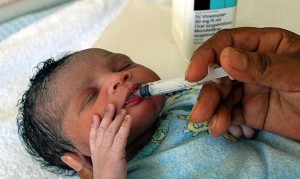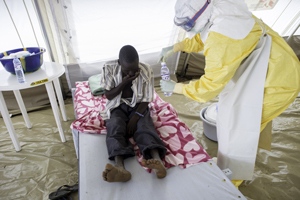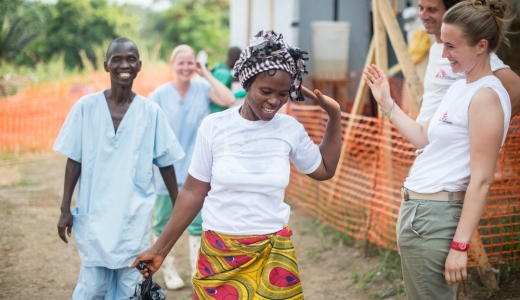One of the most powerful weapons in the ongoing fight against Ebola is considered to be Ebola survivors themselves, who carry antibodies in their blood. Survivors in Guinea, Liberia and Sierra Leone are signing up to work in Ebola treatment units, care for children orphaned by Ebola, and provide counselling to Ebola victims. Their fight is not just against Ebola, however. It is also a fight against the powerful social stigma faced by survivors of the disease.
The outbreak has killed over 10,000 people in West Africa to date, and continues to expand, doubling every three weeks. One of the largest current challenges is that, although hundreds of millions of dollars have been pledged in aid from foreign sources, West African governments are losing the battle because of a shortage of front line health care workers.
Treatment units are being set up by various organizations to combat the disease. Among those volunteering to work at the units are Ebola survivors.
 Survivors are believed to possess immunity to Ebola because of antibodies that exist in their blood.
Survivors are believed to possess immunity to Ebola because of antibodies that exist in their blood.
Ordinary health care workers must protect themselves from contamination using heavy personal protective equipment, and cannot offer victims the same type of human contact survivors are capable of offering.
 Survivors can also offer counsel.
Survivors can also offer counsel.
“We share our own experience with those people, explaining that we were sick but now we have been cured,” said a Guinean high school teacher, Fanta Oulen Camara, who recovered from Ebola after a two week fight. “We give them hope.”
But the fight does not end for survivors when they recover from the disease. After Camara recovered from Ebola, she lost her job, friends stopped visiting, and her brother was told not to return to his office.
“Everyone has been facing stigma and rejection,” said a Guinean doctor, Oulare Bakar, who set up the survivors association three months after he beat Ebola. “We needed to send a message to the people about the epidemic and also the possibility to be cured.” The role of Ebola survivors in the Ebola fight also involves demystifying the disease, Bakar said.
Surviviors may also offer a cure. The World Health Organization is currently undertaking a project to store the blood of survivors to be used as a serum to treat new infections. The project could be realized as early as December.
By Heidi Woolf
Photos: Anna Zieminski
